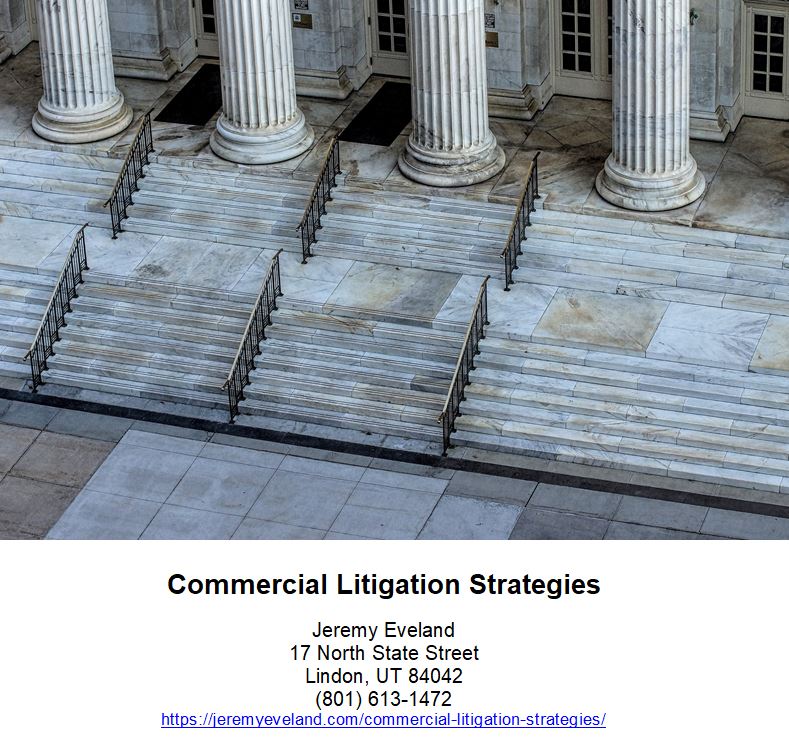Management Consultant
-
Trainer, Researcher, Attorney
- Introduction
- What Are the Challenges of Being a Management Consultant?
- What Are the Benefits of Working as a Management Consultant?
- What Are the Different Types of Management Consulting Firms?
- What Qualifications Do You Need to Become a Management Consultant?
- What Does a Management Consultant Do?
- Why Your Consultant Should Have an MBA
- Why You Should Hire Someone With Years of Experience
- Proven Results and Systematic Growth Programs
- Q&A
“Unlock Your Business Potential with a Management Consultant”
Introduction
Management consulting is a profession that provides advice and assistance to organizations to help them improve their performance. It is a highly specialized field that requires a combination of business acumen, technical knowledge, and interpersonal skills. Management consultants work with organizations to identify problems, develop solutions, and implement changes that will improve the organization’s performance. They may also provide advice on strategy, operations, finance, and other areas. Management consultants are often hired to help organizations become more efficient, reduce costs, and increase profits. They may also be called upon to help organizations develop new products or services, or to help them enter new markets. Management consultants are an invaluable resource for organizations looking to improve their performance and achieve their goals.
What Are the Challenges of Being a Management Consultant?
Being a management consultant can be a rewarding and challenging career. As a consultant, you are responsible for providing advice and guidance to organizations on how to improve their operations and reach their goals. While the job can be highly rewarding, there are some challenges that come with it.
This is part of the category Business Consulting.
One of the biggest challenges of being a management consultant is the need to stay up to date on the latest trends and developments in the industry. As a consultant, you need to be able to provide your clients with the most up-to-date advice and strategies. This requires a great deal of research and staying abreast of the latest news and developments in the industry.
Another challenge of being a management consultant is the need to be able to quickly adapt to different situations. As a consultant, you may be called upon to work with a variety of different organizations and industries. This requires you to be able to quickly understand the needs of each organization and develop strategies that are tailored to their specific needs.
Finally, being a management consultant requires you to be able to effectively communicate your ideas and strategies to your clients. You need to be able to clearly explain your ideas and strategies in a way that is easy for your clients to understand. This requires strong communication skills and the ability to effectively present your ideas in a way that is both persuasive and convincing.
Overall, being a management consultant can be a highly rewarding and challenging career. It requires a great deal of research, adaptability, and communication skills. However, with the right skills and dedication, it can be a highly rewarding and successful career.
What Are the Benefits of Working as a Management Consultant?
Management consulting is a highly sought-after career path for many professionals. It offers a unique opportunity to work with a variety of clients, industries, and organizations, while also providing a competitive salary and a range of benefits. Here are some of the key benefits of working as a management consultant:
1. Professional Development: Working as a management consultant provides an opportunity to develop a wide range of skills, from problem-solving and communication to project management and data analysis. This can be a great way to build a strong foundation for a successful career.
2. Variety: Management consultants often work with different clients and industries, which can provide a great opportunity to gain experience in a variety of areas. This can be a great way to stay engaged and motivated in your work.
3. Flexibility: Many management consulting firms offer flexible working arrangements, such as remote working and part-time hours. This can be a great way to balance work and personal commitments.
4. Networking: Working as a management consultant can provide an opportunity to build a strong professional network. This can be a great way to open up new opportunities and build valuable connections.
5. Financial Rewards: Management consultants are typically well-paid, with salaries often ranging from $50,000 to $150,000 per year. This can be a great way to earn a competitive salary and enjoy financial security.
Overall, working as a management consultant can be a great way to develop professionally, gain experience in a variety of industries, and enjoy financial rewards. It can also provide an opportunity to build a strong professional network and enjoy flexible working arrangements.
What Are the Different Types of Management Consulting Firms?
Management consulting firms provide advice and assistance to organizations in order to help them improve their performance. These firms offer a wide range of services, from strategic planning to operational improvement. Depending on the size and scope of the organization, different types of management consulting firms may be needed.
Strategy Consulting Firms: These firms specialize in helping organizations develop and implement strategies to achieve their goals. They provide advice on how to structure the organization, develop competitive advantages, and create value. They also help organizations identify and capitalize on opportunities in the marketplace.
Operational Consulting Firms: These firms focus on helping organizations improve their operations. They provide advice on how to streamline processes, reduce costs, and increase efficiency. They also help organizations develop and implement new technologies and systems.
Financial Consulting Firms: These firms specialize in helping organizations manage their finances. They provide advice on how to maximize profits, reduce costs, and manage risk. They also help organizations develop and implement financial strategies.
Human Resources Consulting Firms: These firms specialize in helping organizations manage their human resources. They provide advice on how to recruit and retain talent, develop and implement compensation and benefits plans, and create a positive work environment.
Technology Consulting Firms: These firms specialize in helping organizations develop and implement technology solutions. They provide advice on how to select and implement the right technology for the organization, as well as how to use technology to improve performance.
Organizational Consulting Firms: These firms specialize in helping organizations develop and implement organizational structures and processes. They provide advice on how to create an effective organizational culture, develop and implement policies and procedures, and create an effective organizational structure.
These are the main types of management consulting firms. Depending on the size and scope of the organization, different types of firms may be needed. It is important to choose the right firm for the organization’s needs in order to ensure the best results.
What Qualifications Do You Need to Become a Management Consultant?
Management consultants are highly sought-after professionals who provide advice and guidance to businesses and organizations. To become a successful management consultant, you need to have a combination of education, experience, and skills.
Education: A bachelor’s degree in business, economics, finance, or a related field is typically required to become a management consultant. Many employers also prefer candidates who have a master’s degree in business administration (MBA).
Experience: Most employers require at least two to three years of experience in a related field, such as management, finance, or accounting. This experience can be gained through internships, part-time jobs, or full-time positions.
Skills: Management consultants must have excellent problem-solving, communication, and analytical skills. They must also be able to work independently and as part of a team. Additionally, they must be able to think strategically and have strong organizational skills.
In addition to the qualifications listed above, many employers also require management consultants to have certifications, such as a Certified Management Consultant (CMC) or a Certified Public Accountant (CPA). These certifications demonstrate a commitment to the profession and a high level of expertise.
What Does a Management Consultant Do?
Management consultants provide advice and guidance to businesses and organizations to help them improve their performance and efficiency. They analyze existing processes and procedures, identify areas of improvement, and develop strategies to increase productivity and profitability.
Management consultants typically begin by conducting a thorough analysis of the organization’s current operations. This includes researching the organization’s history, goals, and objectives, as well as interviewing key personnel and stakeholders. After gathering this information, the consultant will develop a plan of action to address the organization’s needs.
The consultant will then work with the organization to implement the plan. This may involve developing new processes and procedures, training staff, and providing guidance on how to best utilize resources. The consultant may also provide advice on how to improve customer service, increase sales, and reduce costs.
In addition to providing advice and guidance, management consultants may also be responsible for developing and presenting reports and presentations to the organization’s leadership. These reports and presentations will outline the consultant’s findings and recommendations.
Management consultants are highly skilled professionals who possess a deep understanding of business operations and processes. They are able to identify problems and develop solutions that will help organizations reach their goals. By providing valuable advice and guidance, management consultants can help organizations become more successful and profitable.
Why Your Consultant Should Have an MBA
Having an MBA can be a valuable asset for any consultant. An MBA provides a comprehensive understanding of business principles and practices, which can be applied to a variety of consulting roles. Here are some of the key benefits of having an MBA for a consultant:
1. A Broader Perspective: An MBA provides a comprehensive overview of business principles and practices, which can be applied to a variety of consulting roles. This broad perspective can help consultants to better understand the needs of their clients and develop more effective solutions.
2. Improved Problem-Solving Skills: An MBA provides a strong foundation in problem-solving skills, which can be applied to a variety of consulting roles. This can help consultants to identify and address problems more quickly and effectively.
3. Increased Knowledge of Business Practices: An MBA provides a comprehensive understanding of business practices, which can be applied to a variety of consulting roles. This knowledge can help consultants to better understand the needs of their clients and develop more effective solutions.
4. Improved Communication Skills: An MBA provides a strong foundation in communication skills, which can be applied to a variety of consulting roles. This can help consultants to better communicate with their clients and develop more effective solutions.
Overall, having an MBA can be a valuable asset for any consultant. An MBA provides a comprehensive understanding of business principles and practices, which can be applied to a variety of consulting roles. This can help consultants to better understand the needs of their clients and develop more effective solutions.
Why You Should Hire Someone With Years of Experience
Having someone with years of experience on your team can be a great asset to any organization. Experienced professionals bring a wealth of knowledge and expertise to the table that can be invaluable in helping to achieve success. Here are some of the key benefits of hiring someone with years of experience:
1. Increased Efficiency: Experienced professionals have a better understanding of the processes and procedures involved in completing tasks. This means they can complete tasks more quickly and efficiently, saving time and money.
2. Improved Quality: Experienced professionals have a better understanding of the quality standards that need to be met. This means they can produce higher quality work, which can help to improve the reputation of the organization.
3. Reduced Risk: Experienced professionals have a better understanding of the risks associated with certain tasks. This means they can help to reduce the risk of mistakes or errors, which can save the organization time and money.
4. Increased Productivity: Experienced professionals have a better understanding of how to get the most out of their time. This means they can be more productive, which can help to increase the overall productivity of the organization.
Overall, hiring someone with years of experience can be a great asset to any organization. They bring a wealth of knowledge and expertise to the table that can help to improve efficiency, quality, risk management, and productivity.
Proven Results and Systematic Growth Programs
At XYZ, we understand that achieving success requires more than just hard work. That’s why we offer proven results and systematic growth programs to help our clients reach their goals.
Our team of experienced professionals has developed a comprehensive suite of services designed to help you reach your objectives. We provide a range of services, including strategic planning, market research, financial analysis, and marketing campaigns. Our team will work with you to develop a customized plan that meets your specific needs.
We also offer a variety of growth programs to help you reach your goals. Our programs are designed to help you increase your revenue, expand your customer base, and improve your overall performance. We provide comprehensive training and support to ensure that you have the tools and resources you need to succeed.
At XYZ, we are committed to helping you achieve success. Our team of experts will work with you to develop a plan that meets your needs and helps you reach your goals. With our proven results and systematic growth programs, you can be sure that you are on the path to success.
Q&A
1. What is a Management Consultant?
A management consultant is a professional who provides expert advice and assistance to businesses and organizations to help them improve their performance and efficiency.
2. What skills do Management Consultants need?
Management consultants need strong analytical, problem-solving, communication, and interpersonal skills. They must also be able to think strategically and have a good understanding of business operations and processes.
3. What type of work do Management Consultants do?
Management consultants typically work with clients to identify areas of improvement, develop strategies and plans, and implement solutions. They may also provide training and guidance to staff, conduct research, and analyze data.
4. What qualifications do Management Consultants need?
Management consultants typically need a bachelor’s degree in business, management, or a related field. Some employers may also require a master’s degree or professional certification.
5. What is the job outlook for Management Consultants?
The job outlook for management consultants is positive. The Bureau of Labor Statistics projects that employment of management consultants will grow 11 percent from 2019 to 2029, faster than the average for all occupations.
6. How much do Management Consultants make?
The median annual wage for management consultants was $83,610 in May 2019. The lowest 10 percent earned less than $50,400, and the highest 10 percent earned more than $154,310.
7. What are the benefits of working as a Management Consultant?
Management consultants can enjoy a variety of benefits, including flexible work schedules, the opportunity to work with a variety of clients, and the potential to earn a high salary.
8. What are the challenges of working as a Management Consultant?
The challenges of working as a management consultant include long hours, tight deadlines, and the need to travel frequently. Additionally, consultants must be able to quickly adapt to changing client needs and demands.
Management Consultant Consultation
When you need help from a Management Consultant call Jeremy D. Eveland, MBA, JD (801) 613-1472 for a consultation.
Jeremy Eveland
17 North State Street
Lindon UT 84042
(801) 613-1472
Related Posts
Real Estate Attorneys in Salt Lake City Utah
Business Contract Lawyer Riverton UT
Business Law and Intellectual Property
Commercial Litigation Strategies
























